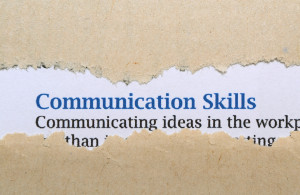How to Make A Referral or New Contact Call
How to Make a Referral or “New Contact” Calll
You make this kind of call to either someone you have just met or someone you have not yet met who has been referred to you by someone you know.
With a referral or ” new contact” call, it’s important to indicate immediately who referred you. The purpose of this call is to gather information to see if and how you can provide mutual support. That means, how can you help the other person and how can that other person help you. It is a getting-to-know-you call.
Calling a person you recently met? Remind them of where you met.
Understanding human speech is most difficult on the telephone because the other person cannot see you and get cues from your articulators– tongue, lips, teeth, jaw movement. So consciously do clear speech– a little slower with good diction for cononants and vowels.
Build Your Career- Do This (Asking Questions–#1 Skill for English Communication)
Right away–Do This to Boost Your Career and Influence——Ask Questions-
Experts report that increasing skills in asking questions and voice inflection are the two skills which fastest boost the careers of native-born speakers of English. If that is true for native-born speakers, it is true for nonnative-born speakers.
Asking questions builds relationship and rapport. Asking questions enables you to get the information you need and to clarify information. Asking questions gets involvement in communication and makes dialogue.
Sometimes international people and native born English speakers feel uncomfortable with asking questions. It’s not complicated! Two goals of asking questions are to get facts and to get opinions.
To get facts:
- “When did you begin work on the plan?”
- “How many employees are available for this task?”
- “What are the dimensions of the house?”
- “Which car reached the intersection first?”
Easiest and most direct question to get opinions:
What do you think of that?
How to Follow-up on Idea or Project
The “Follow-Through” Call
A “follow-through” call is made to follow up on an idea or project. It may involve asking or giving information, scheduling an appointment or meeting or touching base about an opportunity
Examples of openers:
“Hi, this is Bill Chen, calling to follow up to schedule our meeting about next year’s conference.”
“This is Marie Durosier, I wanted to touch base about the project we discussed last month.”
People can hear a smile — so do that while speaking.








